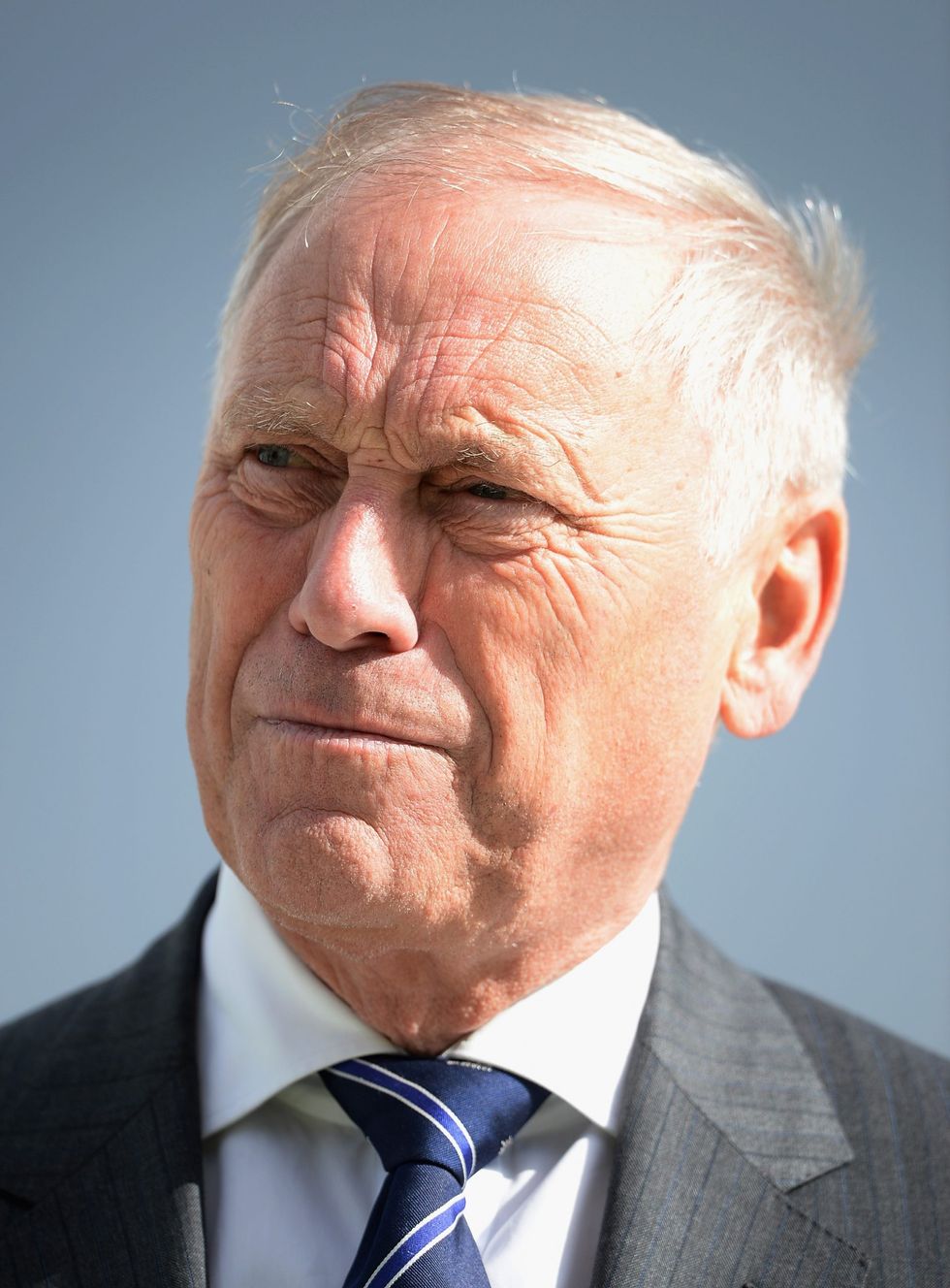IN FEBRUARY 1999, Sir William Macpherson released a devastating report into the racist murder of the black teenager, Stephen Lawrence.
The term ‘institutional racism’ started to prick the conscience of our wonderfully tolerant country.
I say this without any hint of sarcasm or irony because I can’t imagine living in another country.
I wasn’t born here, but I’m so grateful that my father used his British passport to settle in the UK.
The United Kingdom has allowed me to flourish, and I’m where I am because of the kindness of mainly white strangers, including the man I called my foster dad.
I make these points because racists continually ask people who complain about Britain to “go back to where you come from”.
My response is that I have skin in the game, and I’m a patriot whose duty it is to make my homeland – Britain – better for my daughter, her generation, and future progeny.
Oh, and by the way, Britain was built by centuries of immigrants and ‘pure bloods’ are purely fictional.
Anyway, here we are, almost a quarter of a century post-Macpherson, still harping on about racism.
In spite of the deniers in the Met Police, the job isn’t the only institution to be racist.
In June, the long-awaited report into cricket concluded that the sport was not only racist but misogynistic and elitist.
One of its recommendations was to create a better reporting system for complaints.
Another was to produce a regulator independent of the England and Wales Cricket Board.
Without saying it so bluntly, the current structures for regulation in cricket aren’t fit for purpose.
Disrepute
Let’s test that hypothesis.
Exhibit 1: Last month (20), Ian Botham, a legend of the game, declared on a podcast that cricket wasn’t racist, misogynistic or elitist.
The peer, who is regarded as a God in the game, said the Independent Commission for Equity in Cricket (ICEC) report was an “utter waste of money”.
Look on YouTube and the interview is clear about what he said.
As a journalist, I defend to the death Article 10 of both the European Convention on Human Rights and the Human Rights Act – freedom of expression.
So, my objection isn’t about that gagging thought or freedom of speech.
What this is about is bringing cricket into disrepute.

The ECB’s 2023 iteration of its Professional Conduct Regulation is quite clear.
"3.3 No Participant may conduct themself [sic] in a manner, do any act or make any omission at anytime which is improper or which may be prejudicial to the interests of cricket or which may bring the ECB, the game of cricket or any cricketer or group of cricketers into disrepute.
"3.4 Each Participant is bound by and must comply with the ECB Anti-Discrimination Code."
I’d argue that Botham’s comments breached these rules.
The ECB told me that it did not agree with Botham – and that was that, right?
Except.

Former ECB chair, Colin Graves, told Sky News, “There have been odd occasions where words have been said that people may regret afterwards.
"I don't think it was done on a racist, savage basis. I know people don't like the word banter, but I think there could have been a lot of banter in there about it.
"When you play cricket and you're part of cricket teams and you're in cricket dressing rooms, that's what happened in the past.”
The ECB quickly and rightly condemned these remarks.
“We must never again hear the accounts like Azeem Rafiq's, where racist slurs are used as part of normalised language,” the ECB put out in a statement.
“These events, along with many issues experienced by Azeem and others during their time at Yorkshire, have been upheld more than once, including during proceedings overseen by the Cricket Discipline Committee (CDC).
“We vehemently disagree that this is 'just banter' and believe any debate in regard should stop immediately.”
So, here are some questions for the ECB.
- Why ignore publicly what Botham said?
- Where is the consistency in not condemning it publicly?
- Why aren’t the non-executive directors doing their job, jumping up and down demanding their executive directors, responsible for day-to-day running of a multi-million pound supposedly inclusive sport, condemn his comments publicly and investigate him for bringing the sport into disrepute under the ECB’s own rules?
Social media
Exhibit 2: Last week, sources sent me a tweet from @ajmal_shahzad13.
The author’s profile reads, “Assistant Coach and Fast Bowling Lead for Derbyshire CCC | Fast Bowling Coach for Multan Sultans (PSL) | Trent Rockets (The Hundred) | Delhi Bulls (T10)”.
@ajmal_shahzad13 tweeted, “Enjoyable video @Sjopinion10 - worth a watch”

The video is the Botham podcast headlined, “Cricket is NOT racist, misogynistic or elitist!”
I tried to follow the account, unsuccessfully. I tried to verify it, unsuccessfully. I emailed both Derbyshire and Nottinghamshire asking for confirmation, unsuccessfully – neither responded.
One source involved in the game told me, “If you’d been a white journalist from The Sun or Daily Mail, they’d have got back to you immediately.”
They’re undoubtedly right on the balance of probabilities.
In the world of journalism, specialist media like ours can be forgotten and ignored by mainstream organisations.
What they forget at their peril is the business case – you see, we carry a lot of weight in our awfully loyal communities.
When south Asians want unvarnished news with deeper insights, people who reflect their communities without fear or favour, where we share their experiences, culture and deep history, no one can touch us.
For the record, since I joined Eastern Eye, MPs, Downing Street and decision makers have regularly quoted our work; ministers have asked for advice on how to reach the parts they can’t, especially during Covid; oh, and the judiciary admitted racism, sexism and bullying, and was forced to change its policies because of our continuing campaign.
Just saying.
Disappointment
But what about the ECB?
My experience with it has been nothing short of devastating disappointment, and here’s why the ECB is not fit for purpose and should be stripped of its regulatory powers.
It doesn’t regulate. It doesn’t know how to regulate. It wouldn’t know regulation if an insect called regulation bit its backside – in my honestly held opinion based on an absence of malice and experience of this public interest story with no skin in the game.
Why?

I brought the tweet to the media office’s attention.
I received a patronising response – in short, it asked me to check my facts.
Really? Thank you so much for teaching me about journalism 1-0-1.
A few email exchanges later, I wrote, “So, to summarise your position - the ECB won't speak with, never mind [admonish], Lord Botham, nor will it look into whether this tweet is true, and as a regulator, whose job this is, it would rather let things run their course, say all the right things while doing nothing.”
The final response was laughable.
“That’s obviously the conclusions you want to draw, but I’ll respectfully disagree. We have given you a comment on Lord Botham and in terms of Ajmal Shazad, process dictates that this is a matter for his employers to investigate not the regulator at this stage.”
So, here’s a comparable hypothetical.
Suppose I spot an offensive comment in a newspaper which is under the auspices of the Independent Press Standards Organisation.
I complain to the publication, but it ignores me, surely my next step must be to contact IPSO and ask it to investigate, no?
I’ll play the game, ECB.
I’ve sent in a formal complaint asking you to investigate both Botham and @ajmal_shahzad13.
But I shouldn’t have had to do this.
Meaningless apologies
You, ECB, have just spent hundreds of thousands of pounds on an independent report into racism, misogyny and elitism in your sport.
Your chair said, “On behalf of the ECB and wider leadership of the game, I apologise unreservedly to anyone who has ever been excluded from cricket or made to feel like they don’t belong. Cricket should be a game for everyone, and we know that this has not always been the case. Powerful conclusions within the report also highlight that for too long women and black people were neglected. We are truly sorry for this.
“This report makes clear that historic structures and systems have failed to prevent discrimination, and highlights the pain and exclusion this has caused. I am determined that this wake-up call for cricket in England and Wales should not be wasted. We will use this moment to demonstrate that it is a game for all and we have a duty to put this right for current and future generations.”
That was on the 26 June 2023.
Based on your actions on Botham’s comments and @ajmal_shahzad13 tweet, ECB you are still asleep.
You have shown beyond reasonable doubt that your words are meaningless.
You ignored Botham. You’re ignoring this tweet. You’re abrogating your duty.
Zero tolerance means, you lift the phone and ask both Derbyshire and Nottinghamshire, “We’re under scrutiny as never before, what are you doing to find out whether this tweet is genuine?”
This isn’t covering your collective backs.
This is about demonstrating to the 11 million non-white people in England and Wales, “Don’t worry, we’ve got you, and nothing but nothing will stop our cleaning up the game and getting rid of those who don’t believe in inclusivity.”

















